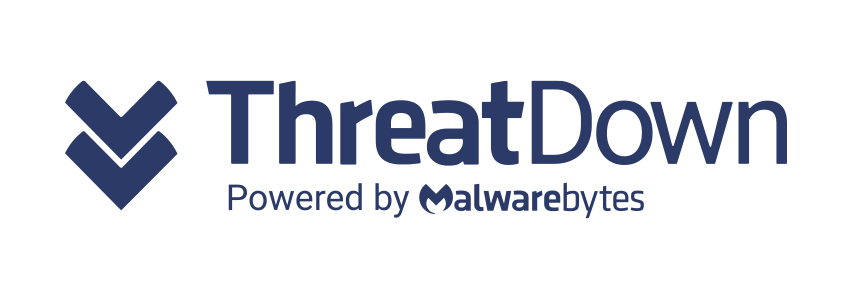Did you know that human mistakes are to blame for 95% of all cybersecurity breaches?
Cyberattacks can affect any firm, regardless of size. To launch these attacks and access an organization’s computer systems, hackers are employing increasingly complex methods. Depending on your location, you may be required to follow specific cybersecurity regulations to demonstrate that your essential assets are protected.
If you don’t, you could face high fines and legal difficulties if your data is exposed as a result of a system breach. As a result, there’s a lot of pressure to comply with these stringent cybersecurity laws and regulations.
Read on to find out more.
What does cybersecurity regulatory compliance mean?
Cybersecurity regulatory compliance entails adhering to several measures to safeguard data confidentiality, integrity, and accessibility.
Cybersecurity standards vary depending on the industry and sector, but they often require the use of a variety of organizational processes and technology to protect data.
The CIS, the NIST Cybersecurity Framework, and ISO 27001 are just a few security frameworks and sources of controls.
Major government cybersecurity regulations
For smooth operations, your business needs to be compliant with the law. Some major government and banking cybersecurity compliance regulations include:
HIPAA
HIPAA is an acronym for the Health Insurance Portability and Accountability Act. Approved in 1996, this legislation contains restrictions to ensure the privacy, integrity, and accessibility of Personal Health Information (PHI).
HIPAA involves healthcare cybersecurity regulations that apply to healthcare providers, health plans, and others who manage PHI. If you’re not sure if HIPAA applies to you, we recommend speaking with an attorney with regulatory compliance experience.
GDPR
The General Data Protection Regulation (GDPR) is a set of data privacy policies that the European Union introduced in 2018 to coordinate data privacy laws across Europe.
All EU member states, the European Economic Area (EEA), and personal data transfers beyond the EU and EEA are covered by the GDPR. This means that GDPR obligations apply to any firm that collects data or targets individuals in the EU, regardless of its location.
The GDPR’s principal goal is to give individuals more control over their data while simultaneously unifying EU legislation to make the regulatory environment easier for transnational businesses. The GDPR specifies guidelines for personal data protection, data minimization, and security.
FERPA
The Family Educational Rights and Privacy Act, or FERPA, is a federal statute that protects the confidentiality of student educational data. All institutions that receive financing from the US Department of Education are subject to this law.
FERPA provides parents, students over the age of 18, and students attending colleges, universities, or trade schools with specific rights and safeguards regarding their educational records.
CCPA
The California Consumer Privacy Act (CCPA) is a state statute enacted to strengthen the privacy rights and consumer protections of California residents. Taking effect in 2020, this was the first law in the United States to provide comprehensive data privacy laws, similar to the GDPR in the European Union.
The CCPA applies to any California-based corporation that generates at least $25 million in annual revenue, makes more than 50% of its revenue from user data collection, or collects data on more than 50,000 users. This includes any corporation that collects or sells personal information from California users, regardless of the location.
Although these four above are some of the most well-known regulations there are lots more out there so it’s always important to check your local regulations with a legal professional.
4 tips for cybersecurity regulatory compliance
Cybersecurity compliance is a core part of any business. To keep up with relevant cybersecurity rules and regulations so you can be compliant, here are some basic steps.
1. Identify what requirements may apply
To start working toward cybersecurity regulatory compliance, you must first determine which regulations or laws you must follow. To begin with, data breach notification regulations exist in every state in the United States, requiring you to tell customers if their personal information is compromised.
For example, regardless of which state your firm is in, if your business deals with the financial information of a New York resident, you would be subject to the NYDFS Cybersecurity Regulation’s set of standards.
Furthermore, the California Consumer Privacy Act and the New York Department of Financial Services Cybersecurity Regulation impose restrictions that may apply to your firm based in any state if you deal with data covered by these laws.
2. Implement policies, procedures, and process controls
It’s not only about technology when it comes to cybersecurity regulatory compliance. It’s also critical to have risk-mitigation policies and processes in place for both compliance and safety.
There is no technical precaution in the world that can prohibit a committed employee from downloading malware onto company systems or visiting unsafe websites.
3. Conduct risk and vulnerability assessments
Almost every significant cybersecurity compliance obligation necessitates a thorough risk and vulnerability analysis. These are crucial in determining the most serious security issues in your organization, as well as the controls you already have in place.
When doing vulnerability assessments, it’s also important to think about your risk of ransomware attacks.
4. Review and test
Examine any applicable government cybersecurity rules that must be followed, and make sure to test your controls regularly. It’s easy to lose track of cybersecurity laws and regulations as firms grow and develop, but regular testing can help you stay on track.
It’s a good idea to keep an eye on compliance as new standards emerge and existing ones change, and to test both technological and process controls regularly. If you are unsure whether you are meeting a compliance requirement, we recommend consulting with a cybersecurity compliance attorney.
How Datto can help
The sort of data you manage, your industry, your regulatory body, and the geographic boundaries in which you operate all influence your regulatory responsibilities.
However, you should speak with a compliance consultant or an attorney to determine the specific cybersecurity regulations that apply to your company.
Contact us if you or your business requires assistance in dealing with cybersecurity compliance obligations. We will be pleased to address any questions you may have about our services.
Source: Datto




